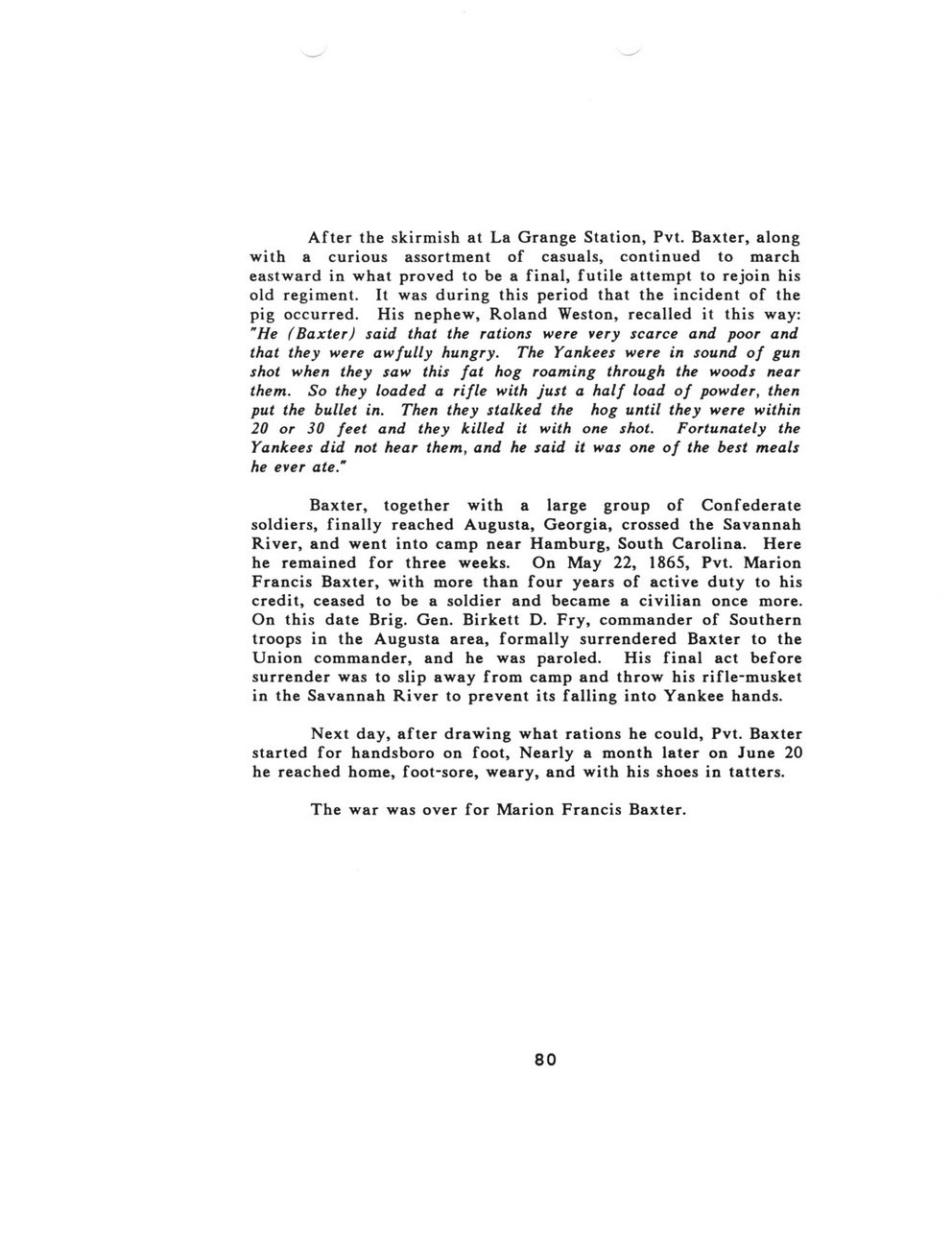This text was obtained via automated optical character recognition.
It has not been edited and may therefore contain several errors.
After the skirmish at La Grange Station, Pvt. Baxter, along with a curious assortment of casuals, continued to march eastward in what proved to be a final, futile attempt to rejoin his old regiment. It was during this period that the incident of the pig occurred. His nephew, Roland Weston, recalled it this way: "He (BaxterJ said that the rations were very scarce and poor and that they were awfully hungry. The Yankees were in sound of gun shot when they saw this fat hog roaming through the woods near them. So they loaded a rifle with just a half load of powder, then put the bullet in. Then they stalked the hog until they were within 20 or 30 feet and they killed it with one shot. Fortunately the Yankees did not hear them, and he said it was one of the best meals he ever ate." Baxter, together with a large group of Confederate soldiers, finally reached Augusta, Georgia, crossed the Savannah River, and went into camp near Hamburg, South Carolina. Here he remained for three weeks. On May 22, 1865, Pvt. Marion Francis Baxter, with more than four years of active duty to his credit, ceased to be a soldier and became a civilian once more. On this date Brig. Gen. Birkett D. Fry, commander of Southern troops in the Augusta area, formally surrendered Baxter to the Union commander, and he was paroled. His final act before surrender was to slip away from camp and throw his rifle-musket in the Savannah River to prevent its falling into Yankee hands. Next day, after drawing what rations he could, Pvt. Baxter started for handsboro on foot, Nearly a month later on June 20 he reached home, foot-sore, weary, and with his shoes in tatters. The war was over for Marion Francis Baxter. 80

Baxter, Marion Francis Marion-Francis-Baxter-Bio.-080